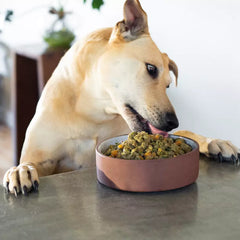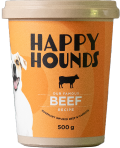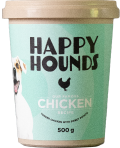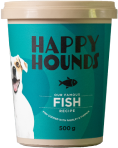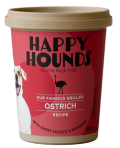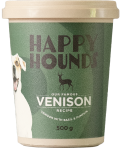Shop
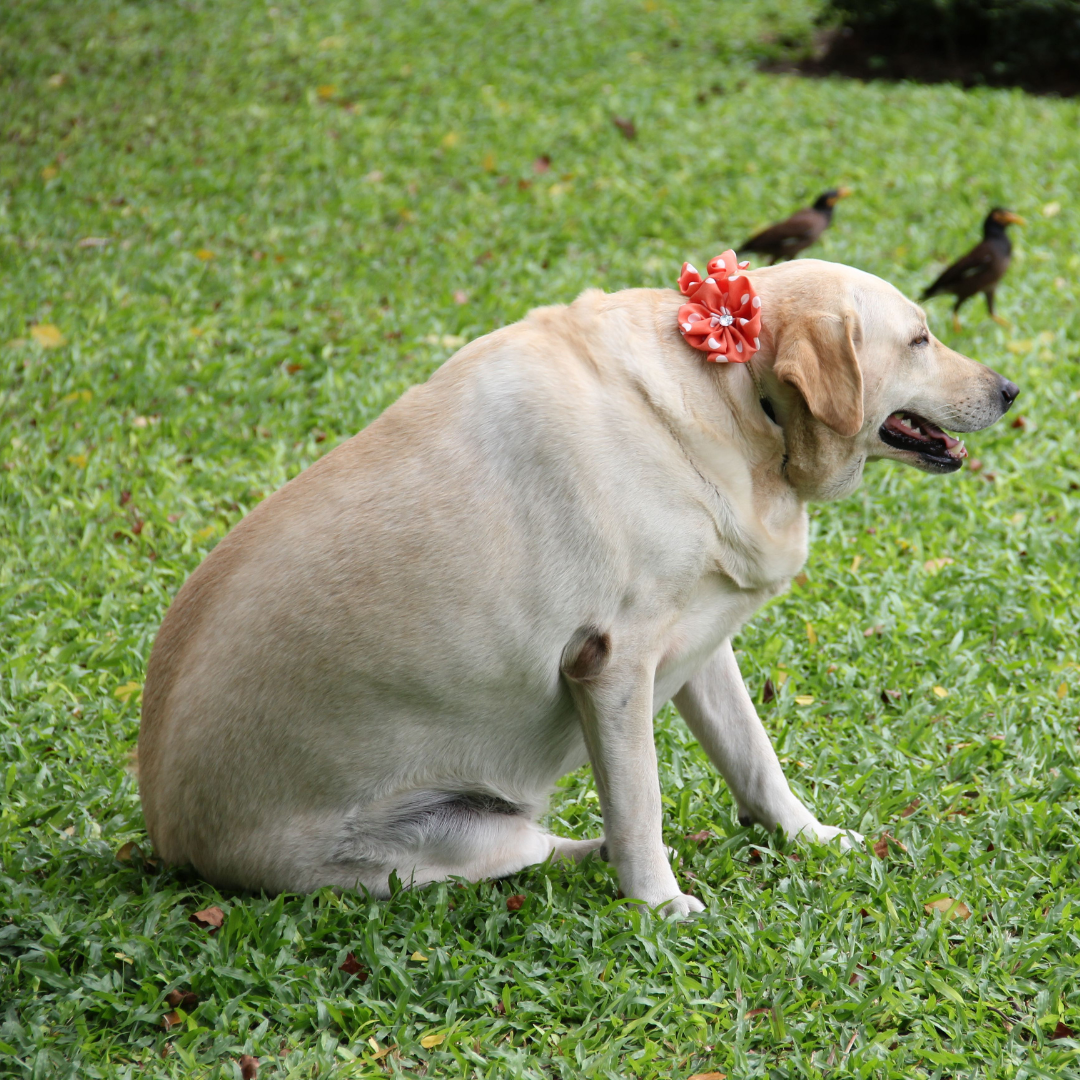
Understanding Dog Obesity: Feeding for a Healthy, Active Life
August 13, 2025 2 min read
Understanding Dog Obesity: Feeding for a Healthy, Active Life
A chubby dog might look adorable, but carrying excess weight can significantly impact their health, mobility, and overall quality of life. Just like humans, dogs are facing an obesity epidemic that affects their longevity, energy levels, and happiness.
Dog obesity isn’t just about appearance - it’s a serious health condition. International studies estimate that 35–59% of dogs in developed countries are overweight, and South African veterinary professionals report similar trends. Extra weight is like a constant burden for a dog, comparable to us carrying a heavy backpack all day, every day.
Why Obesity Matters
Even a few extra kilos can put strain on your dog’s joints, heart, and internal organs. Over time, excess weight increases the risk of:
- Arthritis and joint pain
- Diabetes
- Breathing difficulties
- Heart disease
- Reduced lifespan (by up to two years in some studies)

Dogs can’t tell us when they feel uncomfortable or tired, so it’s up to us to watch for signs like reduced energy, heavy breathing, or reluctance to walk or climb stairs.
The Ultra-Processed Food Problem
Modern convenience pet foods - particularly kibble - are often high in refined carbohydrates, starches, and additivesthat provide calories without true nutritional value.
Why is this an issue?
- High starch and sugar content can spike blood sugar, encouraging fat storage.
- Ultra-processing often removes natural moisture and nutrients, leaving dogs hungrier sooner.
- Fillers and additives can make portion control tricky, leading to overeating.
In contrast,minimally processed diets with real, whole ingredients help dogs feel fuller, with better digestion and stable energy levels.
What Causes Dog Obesity?
Obesity usually stems from a combination of factors, including:
- Overfeeding or free-feeding throughout the day
- Excessive treats or table scraps
- Low exercise levels compared to calorie intake
- Hormonal changes (e.g., post-sterilisation)
- Ultra-processed, high-carb diets
- Genetic predisposition (certain breeds are more prone)
The Role of Fresh, Balanced Food
Fresh, lightly cooked or raw-inspired diets can help maintain healthy weight because they:
- Provide high-quality protein and nutrients for better satiety
- Are moisture-rich, aiding digestion and metabolism
- Remove empty calories and fillers, allowing for accurate portion control
Fresh food isn’t about "eating less" - it’s about eating better, with meals that deliver everything your dog needs to thrive, without the unnecessary extras.
Practical Weight Management Tips
- Feed based on your dog’s ideal weight(not current weight) - your vet can help assess this.
- Use a measuring cup or kitchen scale to avoid overfeeding.
- Limit high-calorie treats - replace with healthy snacks like small pieces of fresh vegetables or lean meat.
- Incorporate daily movement - walks, play, and enrichment activities burn calories and keep joints healthy.
- Stick to set meal times rather than leaving food out all day.
- Monitor body condition (rib check and waistline) instead of focusing only on the scale.
Weight management isn’t about restriction - it’s about feeding for health, energy, and longevity. When dogs are at a healthy weight, they’re more agile, more playful, and less prone to painful conditions.
By focusing on nutrient-dense, minimally processed foodand regular exercise, you give your dog the best chance to live a longer, more vibrant life. Every walk, every healthy meal, every small adjustment counts.


